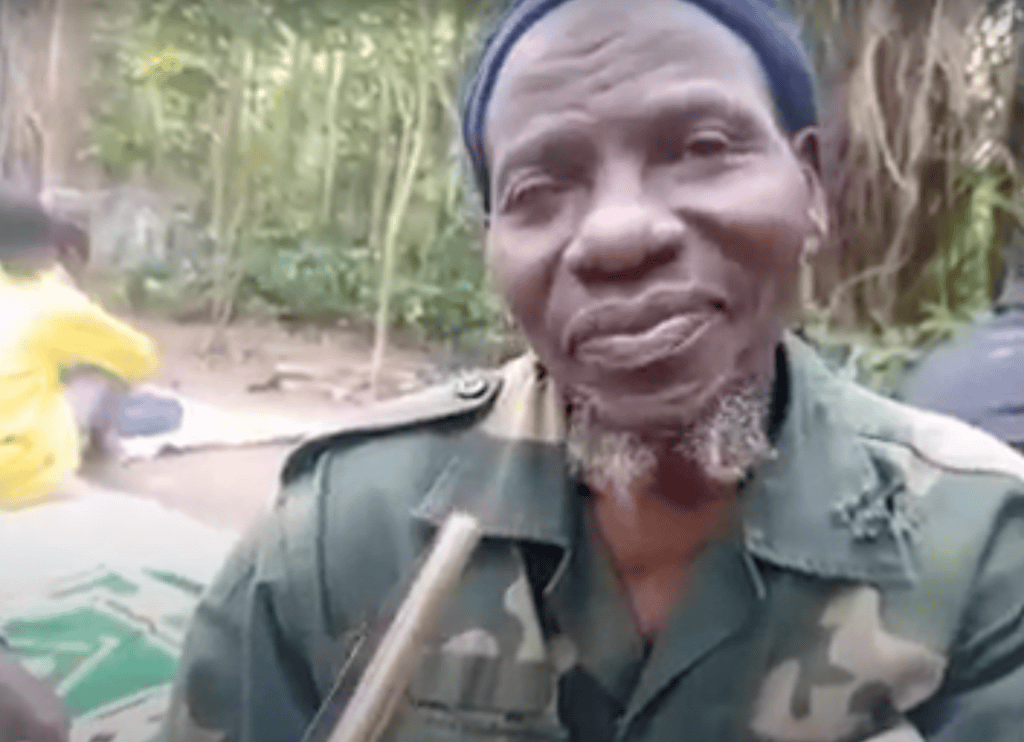
On June 22, an Indonesian peacekeeper from the United Nations Organization Stabilization Mission in the Democratic Republic of the Congo (MONUSCO) was killed in an ambush near the northern city of Beni. The Islamic State has claimed the attack.
According to local media, a MONUSCO contingent was patrolling the area near Makisabo, a small town between Beni and the Ugandan border, when it fell under attack by militants of the Allied Democratic Forces (ADF). A mounting body of evidence suggests that the ADF is the force behind the Islamic State’s DRC operations.
The UN has confirmed that one peacekeeper was killed, and another was injured. Behind the peacekeeping operation in Mali, the UN’s mission in the DRC is the second most dangerous active peacekeeping operation in the world. In December of 2017, MONUSCO suffered the deadliest attacks on UN troops in almost 25 years.
In its statement claiming the June 22 attack, the Islamic State reported that the ambush was carried out by its Central Africa Province (ISCAP), which encompasses jihadists in both the DRC and Mozambique.
“Thanks to God,” the Islamic State’s message begins, “soldiers of the caliphate targeted members of the Crusader UN forces on the road linking the Ugandan borders with Beni city yesterday.”
The group then inflates the total number of deaths by adding that the ambush resulted “in the death of five of them [UN troops].”
This is not the first Islamic State-claimed attack on UN forces in the DRC. The group has claimed assaults on MONUSCO on three other occasions, including the deadly November 2018 clash near Beni that left 7 peacekeepers and 12 Congolese soldiers dead.
The battle was carried out by the ADF and retroactively claimed by the Islamic State in a May 2019 issue of its weekly Al Naba newsletter.
Since April 15, ISCAP has claimed 25 attacks inside the DRC. This represents a significant increase, as from its emergence in April 2019 through March 2020, it only claimed a total of 33 operations in the country. At this current rate, ISCAP is set to surpass its first year of claims in just over two months.
ISCAP’s current rate of claims has already outpaced that of every IS branch in Africa save for the group’s West Africa Province in Nigeria and the Sahel. This uptick in violence tracks with the wider expansion of the ADF’s activities since November 2019.
Following the start of a Congolese military offensive on October 30, 2019, the ADF launched attacks that have left over 600 killed in villages and towns that have expanded beyond their traditional operating area in Beni territory in North Kivu province into parts of southern Ituri province.
ISCAP exploits coronavirus for recruitment

In addition to increasing its attacks on civilians, the ADF appears to be taking advantage of panic in the region to recruit new fighters. In multiple indoctrination and recruitment videos shared in April 2020 via Whatsapp, the group encouraged people negatively affected by the global coronavirus pandemic to join the extremist group.
These videos, shared with FDD’s Long War Journal courtesy of the Bridgeway Foundation, are the latest in a series of dozens of propaganda videos that have increased in quantity and improved in quality over the past five years.
The videos were disseminated with speakers using a mix of Arabic, Luganda, and Swahili, indicating that they are likely intended for a broad audience.
In one three and a half minute video, an interviewer off camera starts by asking, “All praise is to Allah, do you have any appeal you’d make to the outside world during this corona pandemic?” The ADF member, whose face is blurred, responds as follows:
Even this virus is Allah’s army, which will kill all the infidels, Allah willing! My appeal to you all that are in countries headed by Infidels is that you should come and join us because the medicine for that virus is here with us. All you have to do is emigrate from infidel-led countries to this Islamic State here such that you can fight to save Islam.
A minute later, the interviewee continues:
…you only have one option to be safe from the coronavirus, you must emigrate to Jihad…there is no virus that is out there that is capable of invading us here in our camps. This is an assurance that there is no safer place on earth than this place where we are!

In a separate video shared in April, the interviewer asks, “Mzee [Sir], is anyone here in the camp infected with corona?” The ADF insurgent responds, “Corona! No one is infected with the coronavirus.”
He goes on to provide assurance that in the ADF camps, they have no such virus, no need to even wash their hands, and full freedom to congregate for prayers, lectures, and all other activities. His conclusion: “Allah is keeping us safe here from the corona pandemic.”
The ADF and ISCAP
Originally dedicated to overthrowing the Ugandan government, the ADF fled to eastern Congo in the mid 1990’s and began aligning itself with other groups operating in the area and forging relationships with local communities.
Over time, and notably after a shift in leadership around 2014-2015, the ADF further radicalized, dramatically escalating attacks on Congolese civilians. It soon became clear that this radicalization accompanied efforts by the group to align itself with the Islamic State.
In 2016, the ADF began releasing a series of videos in an apparent attempt to publicly declare its radical ideology. Many of the videos demonstrate clear jihadist messaging, including mantras of establishing a caliphate, calls for violence against “infidels,” and a declaration of their intention to impose a strict interpretation of Sharia in the DRC and Uganda.
Anasheed [Islamic a cappella songs] produced by both al Qaeda and the Islamic State were also used in the group’s videos.
The following year, the ADF received financing from Waleed Ahmed Zein, an East Africa-based terrorist who was later sanctioned by the US Treasury for his role within the Islamic State. Treasury noted that his network was able to move money to Islamic State fighters in “Syria, Libya, and Central Africa.”
Zein’s partner, Halima Adan Ali, was also sanctioned by the US Treasury for providing support to the Islamic State. In its press release, Treasury reiterated that Ali and Zein moved money for the Islamic State to fighters in Central Africa.
In February 2018, Congolese troops found Islamic State material and books during a raid on an ADF camp near Beni. One of these books was published by the Islamic State’s Maktabah al Himma, an important wing of the group that once produced theological and ideological treatises.
The book in question, for example, dealt with proper ways to implement hudud [punishments under Islamic law] and how to provide social services to local populations. The book was a hardcover copy, indicating that the militants had received it through personal connections rather than printing it locally.
These links appear to have progressed such that, in April of 2019, the Islamic State claimed its first attack in the DRC under the “Central Africa Province” moniker.
Since then, the group has claimed more than 50 operations in the Congo according to data kept by this author. The majority of these can be tied to verified ADF attacks based on reporting by the Kivu Security Tracker (a project that maps violence in eastern Congo) and by local media.







